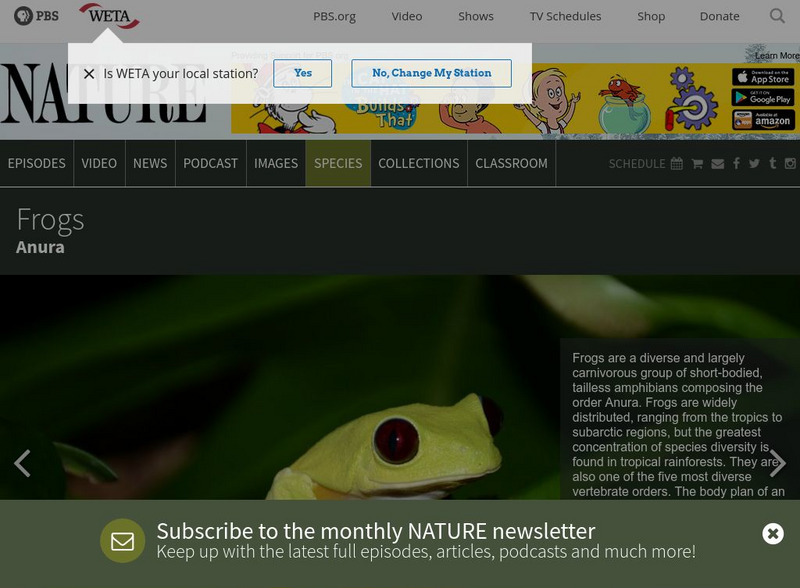Curated OER
Lizard and Bullfrog
In this science worksheet, students compare a lizard and an amphibian. They answer several short questions and color in the pictures.
Curated OER
Radical Reptiles
In this reptiles learning exercise, learners read about reptiles and then answer 10 questions about what they just learned. The answers are on the last page.
Curated OER
Supplementary Related Rates Problems
In this rates worksheet, students read story problems, determine the necessary information, and set up equations to determine the velocity and rates. This two-page worksheet contains two multi-step story problems.
Curated OER
Preventing Hypothermia
Students identify the causes of hypothermia. In this biology lesson, students investigate the different types of heat transfer and heat loss. They discuss several practical measures to avoid hypothermia.
Curated OER
Outdoor Survival
Students are introduced to basic outdoor survival concepts. They identify the seven basic needs for survival. Students describe the symptoms and treatment for frostbite and hypothermia. They compare and contrast the value of different...
Curated OER
Staying Warm-Keeping Cool
For this Internet research worksheet, students go to the indicated website and read about animal habitats. Students answer 6 questions.
Curated OER
Related Rates Problems: An Application of Implicit Differentiation and the Chain Rule
For this related rates problem worksheet, students use the chain rule and implicit differentiation to solve related rate problems, such an writing an expression relating to the ripple of a circle. This three-page worksheet contains...
Curated OER
The Chordates
Students study the characteristics of organisms that are a part of the phylum Chordata. In this organisms lesson plan students identify mammals that are native to Saskatchewan.
Curated OER
The Bottlenose Dolphin: Reading Comprehension
In this comprehension activity, students read a selection about the Bottlenose Dolphin, then answer 5 multiple choice questions. Answers provided.
Curated OER
Coma
Students examine the diving reflex response which allows a person to stay underwater for an extended period of time. They complete an experiment to compare resting pulse rate and pulse rate when their face is submerged in water.
Curated OER
Animals Word Search Puzzle
To make the classic word search more challenging and academic, this animal-terms puzzle has scholars solving clues to determine the words they find. Fifteen clues give detailed definitions of biology terms such as carnivore, reptile,...
Curated OER
Prairie Scales and Prairie Smoothies
Sixth graders explore the animals that live on the prairie and identify differences between amphibians and reptiles and the adaptations each have made to live on the prairie.
Curated OER
Animals Multiple Choice Words Worksheet
Looking for some simple multiple-choice questions for an upcoming biology unit on animals? This activity features 7 clearly worded questions, each with 4 possible answers. Topics include adaptation, camouflage, ecosystems, animal...
Curated OER
The Trail of Tears; Its Grief and Loss
Fifth graders trace the development and expansion of the US while studying the Trail of Tears. They examine the political factors and analyze the impact the Indian Removal Act had upon a society. They present a case for or against the...
Ducksters
Ducksters: Fish for Kids: Learn All About Aquatic and Ocean Marine Life
Kids learn what makes up a fish. What are gills and how do they breathe in the water?
Wikimedia
Wikipedia: Harper Lee
Here at Wikipedia you can find an encyclopedia article exploring the life of Nelle Harper Lee and her work.
PBS
Pbs Nature: Frogs and Toads
Do you know how to tell the difference between a frog and a toad? This site provides interesting facts and information about this type of amphibian from where they live to what they eat and more.
Environmental Education for Kids
Eek!: Amphibians
Amphibians are cold-blooded, smooth-skinned vertebrates. Most live some of their life in water and some on land. The most common amphibian critter is a frog but there are many others. Read about Wisconsin's many amphibians here.

















